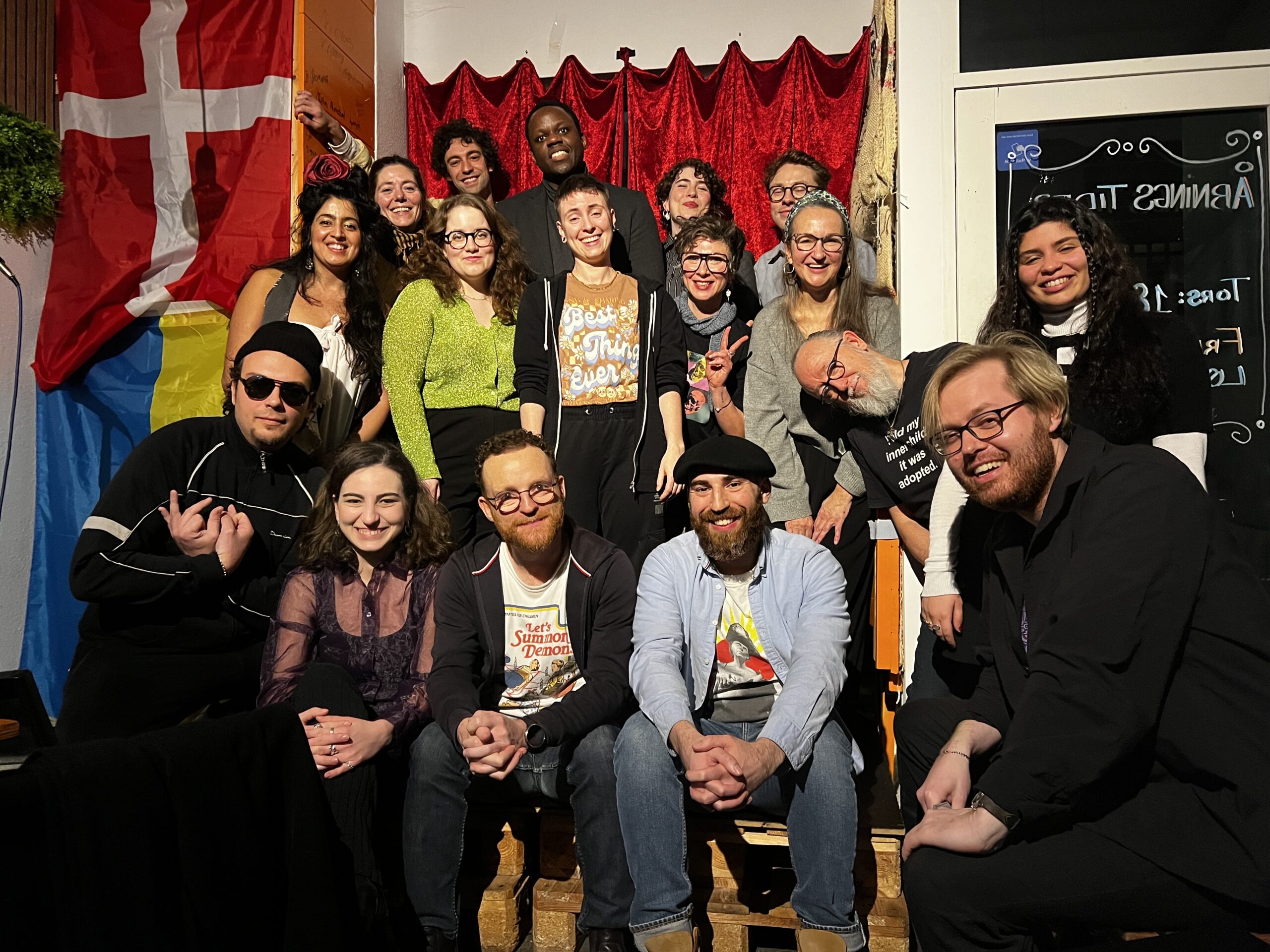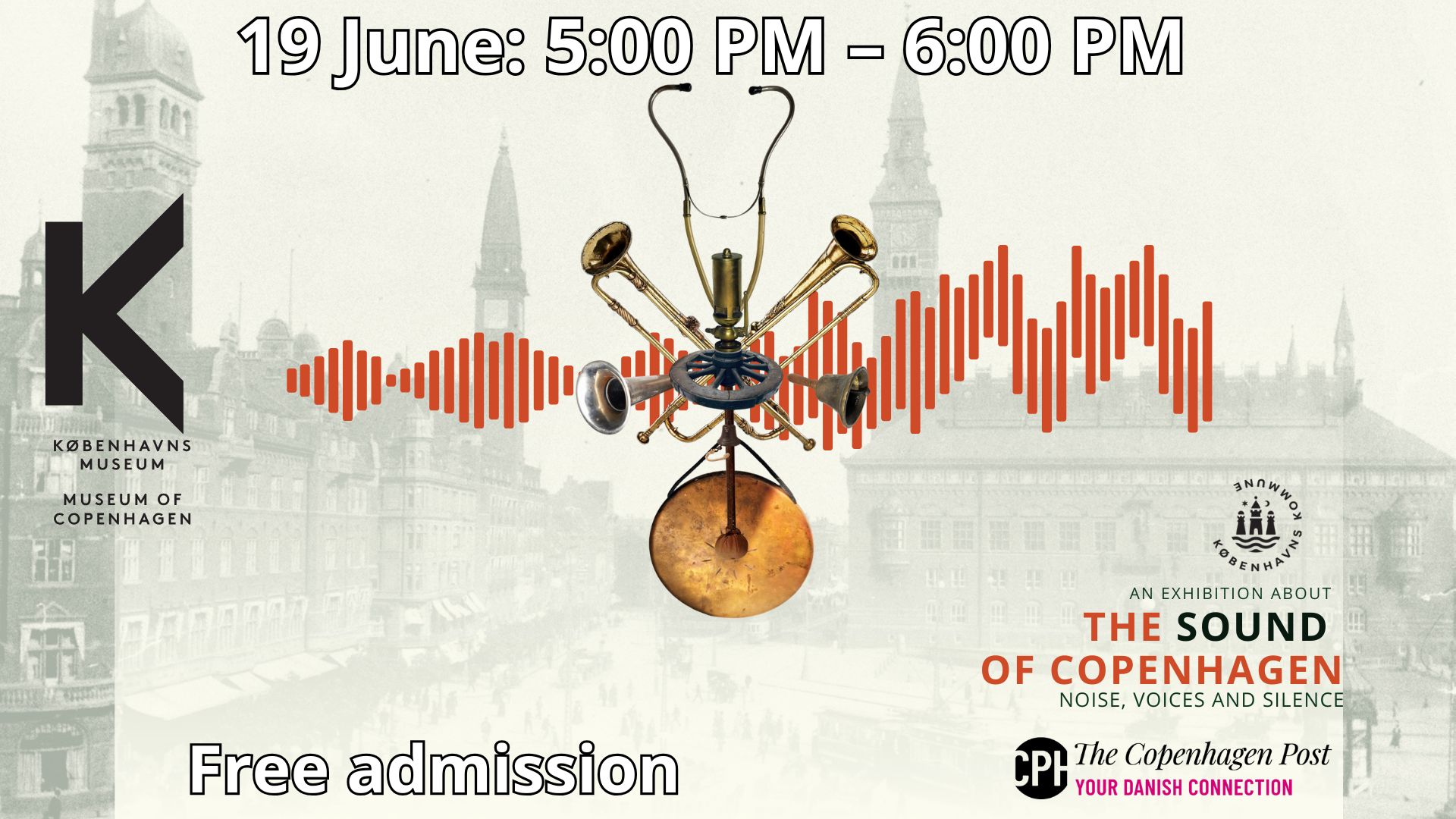I arrive thirty minutes early at Den Lille, a small venue squeezed between Hillerødgade and Bisbeengbuen. Inside, it feels like a living room, with small groups of people starting to gather, many of them nervously nursing a drink. The evening’s lineup is being organised- negotiations are ongoing about who will go on stage first.
At the centre of it all is Arina Trostyanetskaya. She’s the founder of Poetry Unleashed, an English-language monthly poetry open mic that has hosted poetry nights and formed a community following since August 2023.
“It was a very spontaneous and egocentric story! I decided to stop travelling as much as I had done, and settle much more in Copenhagen… and I was looking for places where I could read poetry”.
Arina looked for her community, but couldn’t see it right away. “I saw this literature salon at Den Lille but I realised it was all in Danish so I ended up not going… but I did write them some questions and they wrote back and said, ‘well, why don’t you just start an event in English here?’ And I kind of… totally went all in”
Around ten minutes before the show is due to start, people start to come through the door. Before too long, everyone is helping each other find spare places to sit, and foldable chairs are being passed over heads to squeeze the last people in. There’s a sense of nervous anticipation, quite a few of tonight’s performers haven’t been on stage before, let alone reading their poetry aloud.
“For some, it’s a first time ever! And creating that space… I’m very happy for that… that Poetry Unleashed can offer that and people have an opportunity to receive a lot of warmth.”
As well as a rotation of fresh faces, there’s a core of regular poets and guests who keep returning. The hushed conversation around the room is both in English and Danish. “There’s always been quite a few Danish people coming to read right from the start.”
The buzz of noise feels collaborative and welcoming, the gap between Danes and non-Danes bridged through poetry and self-expression.
All eyes focus on the front of the room as the first performer is introduced. Arina calls over for the lights to be dimmed, and the crowd is quiet. Later in a cafe, I asked Arina how she ended up in Copenhagen.
“I was in the Nederlands Dans Theater before, and in 2012 I got my job here in the Danish Dance Theater (Dansk Danseteater)”. I’ve heard the life of a dancer can be intense and potentially isolating, so I ask Arina about how she felt coming to Denmark. “Well, I stayed with the company for three seasons, and then afterwards started freelancing and working between Sweden and Denmark”.
“I fell in love with Copenhagen when I came for the first audition”, but she echoed inability to immediately find an ever-elusive ‘third space’.
“I was writing to the venue (Den Lille) maybe a few days before the first one and just saying, I think I have to cancel… I needed to find people to read! And I had very little network then”. I wonder whether this stress was worth it, just to find somewhere to read poetry aloud.
“We managed it together, somehow!” And people started coming, with last month’s guests often turning into next month’s performers. “Now I have between 12 and 16 poets every night, and I have to start saying no to people; they have to go on a waitlist.”
“We’ve had people reading from Asia, the Middle East, Australia, South and North America.. It’s exciting. Now we’re only missing Antarctica!”
Taking the initiative to create a creative community is impressive, but I wonder what it says about Copenhagen. When so much about creativity is collaborative or community-focused, and a chief complaint amongst immigrants here is that it’s hard to break into Danish social groups, is Copenhagen a welcoming city for creativity?
Arina considers her words. “I think every experience is so individual… but I don’t think spaces like this are particularly easy to find, and that’s what I hear from a lot of expats who come and they say ‘every week when I was living in Portugal I was going to these type of events, and now I can’t find it’”.
Arina seems to have a busy schedule teaching dance classes to a range of different levels and audiences. So I’m curious about what drives someone so busy with dance to also want to express themselves through poetry. How do these two artistic outlets connect?
“A lot of what I write is connected to a very physical experience, like textures and sensations that are very bodily… and I think a lot of that comes from dance… because it’s all about the subtleties in the shift of your mood, of the environment or your inner state through physicality. And a lot of that is going into my writing”
At Den Lille, my seven-minute slot to read poetry from the notes app on my phone is approaching, and I feel surprisingly nervous when I realise I’m next. I’m fairly confident when it comes to public speaking, but it feels like an extra step to read your poetry on stage.
There’s a feeling of naked vulnerability, and a realisation of how personal some elements of what I’ve chosen to read might be. When I look up from the stage and through the lights, I can see Arina smiling with encouragement.
As well as creating a space for expression, Arina has created a community around Poetry Unleashed, whether she set about trying to do that or not.
“Accidentally things just started to build, and connections (were made), and I can see people posting their hangouts now, and they’re posting ‘it’s a Poetry Unleashed friendship!’, and poets are writing together, and inspired by each other… and I have no power over it!”
Accident or not, every month in a small room on the border of Nørrebro, Nordvest and Frederiksberg, a small group of international and Danish poets has created a sense of community and settled into a place where they can express themselves and be vulnerable.
“I’m kind of just keeping the fire lit now… and it’s taken on its own life”.














